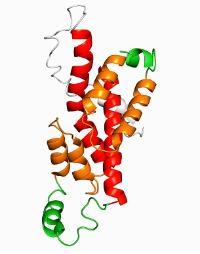
As part of our new initiative across the Faculty, are showcasing research and their researchers across the board engaging with the future generations of researchers. This week we continue our My First Paper campaign with Shahram Mesdagh from ISMIB, telling us all about his first research paper.
What was the title of your first paper and who was it submitted to?
The title of my first paper was ‘In silico prediction of structure and function for a large family of transmembrane proteins that includes human Tmem41b’ and was submitted to F1000 research.
It was published in 2021 and at the time we knew another group at the University of Tokyo were working on the same protein as us; it felt like a race to get this paper out. In the end we published our findings 2 months before our competitors who reported
How would you explain what this paper was about to your grandparents?
Tmem41b is a protein that lives on membranes inside our cells. Tmem41b, along with other proteins, is important in recycling waste material in our cells. Without Tmem41b this recycling cannot take place. Tmem41b is also important in embryonic development; embryos of mice without Tmem41b die at the eight-week stage.
Our research showed that Tmem41b has unusual structural features that support the hypothesis that Tmem41b forms a channel to move an unknown substance from one part of the cell to another.


What was the most significant thing for you about that paper?
The early work that we performed on Tmem41b resulted in seemingly conflicting data. However, our development of a novel data cross-referencing tool (www.conplot.org) led to the realisation that the Tmem41b possessed unusual structural features that explained the apparent conflicts in the initial data gathered.
What advice would you give to others about submitting their first paper?
Do not take the reviewer comments personally! Initially I found the feedback from the reviewers disheartening, however, once I started working through their comments and making their suggested amendments to the manuscript, I recognised how important their feedback was in terms of making my paper more robust in the reporting of our findings. Now I view reviewers more as collaborators rather than examiners!
You can find Shahram's paper here.
Shahram Mesdaghi is a fourth year PhD student working with the Rigden Group led by Professor Daniel Rigden which utilises a wide range of bioinformatics tools and modelling software to diverse proteins of interest.